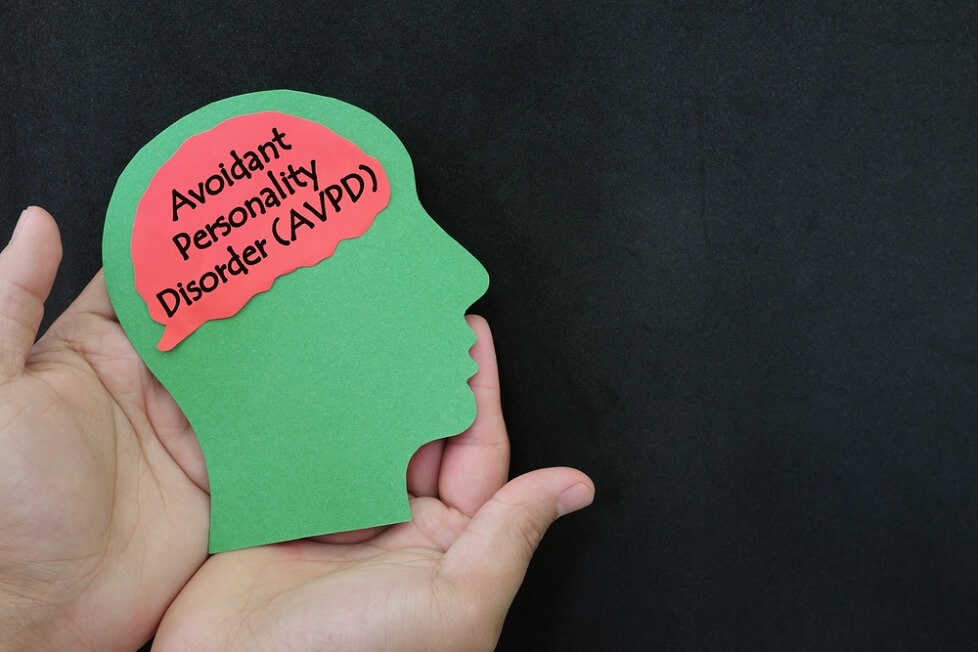Avoidant Personality Disorder is a mental health condition that can significantly impact an individual’s life. People with APD often experience overwhelming anxiety and fear in social situations, leading them to avoid interactions and isolate themselves. This disorder can have far-reaching effects on relationships, work, and overall well-being.
What is Avoidant Personality Disorder?
Throughout this blog post, we will discuss the following key aspects of Avoidant Personality Disorder:
- Understanding Avoidant Personality Disorder Symptoms: We’ll take a closer look at the common symptoms associated with APD and explore how these symptoms can affect a person’s daily life.
- Exploring the Causes of Avoidant Personality Disorder: What factors contribute to the development of APD? We’ll delve into genetic predispositions and environmental triggers that play a role in this condition.
- Diagnosis and Testing for Avoidant Personality Disorder: Discover the methods used by healthcare professionals to diagnose APD, including psychological evaluations, diagnostic criteria, and the importance of ruling out other conditions.
By the end of this blog post, you’ll have a better grasp of Avoidant Personality Disorder and the steps involved in its recognition and understanding. So, let’s dive in and explore this disorder’s intricate facets, starting with a closer look at its symptoms.
Avoidant Personality Disorder Symptoms
Avoidant Personality Disorder (APD) is characterized by a range of distinct symptoms that significantly affect an individual’s life. Recognizing these symptoms is crucial for early identification and seeking appropriate help.
What Are the Common Symptoms?
- Excessive Social Anxiety: Individuals with APD often experience intense fear and anxiety in social situations. This anxiety can be so severe that they avoid social gatherings and interactions whenever possible.
- Feelings of Inadequacy: People with APD frequently harbor a deep sense of inadequacy and inferiority. They may believe they are unworthy of social relationships or fear that others will judge them negatively.
- Hypersensitivity to Rejection: Rejection sensitivity is a hallmark of APD. Even minor perceived slights or criticism can lead to intense emotional distress, making it challenging to form and maintain relationships.
- Isolation: Due to their social anxiety and fear of rejection, individuals with APD tend to lead isolated lives. They may have few, if any, close friends and avoid situations where they might be the center of attention.
- Reluctance to Take Risks: APD often causes individuals to be risk-averse. They are hesitant to engage in new activities, try new things, or pursue opportunities, fearing failure or embarrassment.
How Do Symptoms Affect Daily Life?
The symptoms of APD can have a profound impact on a person’s daily life:
- Limited Social Interactions: Those with APD may struggle to maintain relationships, both personal and professional. Their avoidance of social situations can hinder career advancement and personal growth.
- Career Challenges: Avoiding work-related social interactions or opportunities for advancement can limit career prospects. Individuals with APD may find it difficult to attend job interviews, participate in meetings, or network effectively.
- Emotional Distress: The constant fear of rejection and feelings of inadequacy can lead to chronic emotional distress, contributing to symptoms of depression and anxiety.
- Isolation and Loneliness: Social isolation can lead to feelings of loneliness, which can further exacerbate mental health issues and impact overall well-being.
Recognizing these symptoms and their effects is the first step toward seeking help and managing Avoidant Personality Disorder. In the following sections, we will delve deeper into the causes of APD and explore methods of diagnosis and testing.
Causes
Avoidant Personality Disorder (AvPD) is a complex condition influenced by various factors. Understanding its causes can shed light on its development and pave the way for effective treatment. Two key factors contributing to AvPD are genetic predisposition and environmental triggers.
Genetic Factors
Genetics plays a significant role in the development of Avoidant Personality Disorder. Individuals with a family history of anxiety disorders or AvPD are at a higher risk of developing this condition themselves. Specific genetic variations related to anxiety and social behavior may increase susceptibility to AvPD.
Research suggests that certain genes associated with neurotransmitters like serotonin, which regulate mood and anxiety, may contribute to AvPD. However, genetics alone do not determine whether someone will develop this disorder. Environmental factors also play a crucial role.
Environmental Triggers
Environmental factors during childhood and adolescence can significantly impact the development of Avoidant Personality Disorder.
These triggers can amplify genetic predispositions and shape the individual’s personality and coping mechanisms. Common environmental triggers include:
- Childhood Trauma: Experiencing physical, emotional, or sexual abuse during childhood can lead to the development of AvPD. Such traumatic experiences can create a profound sense of insecurity and fear in social situations.
- Bullying or Rejection: Persistent experiences of bullying, rejection, or humiliation by peers can contribute to the formation of avoidant behaviors. These negative interactions can erode self-esteem and foster avoidance of social situations.
- Overprotective Parenting: Excessive protection or overbearing parenting can hinder a child’s ability to develop social skills and self-confidence. Children who are overly sheltered may struggle with independence and social interactions later in life.
- Critical Parenting: Parents who are overly critical or perfectionistic can instill a fear of judgment and failure in their children. This fear can manifest as Avoidant Personality Disorder in adulthood.
It’s essential to recognize that not everyone exposed to these environmental triggers will develop AvPD. The interplay between genetics and environment is complex, and individual experiences vary.



